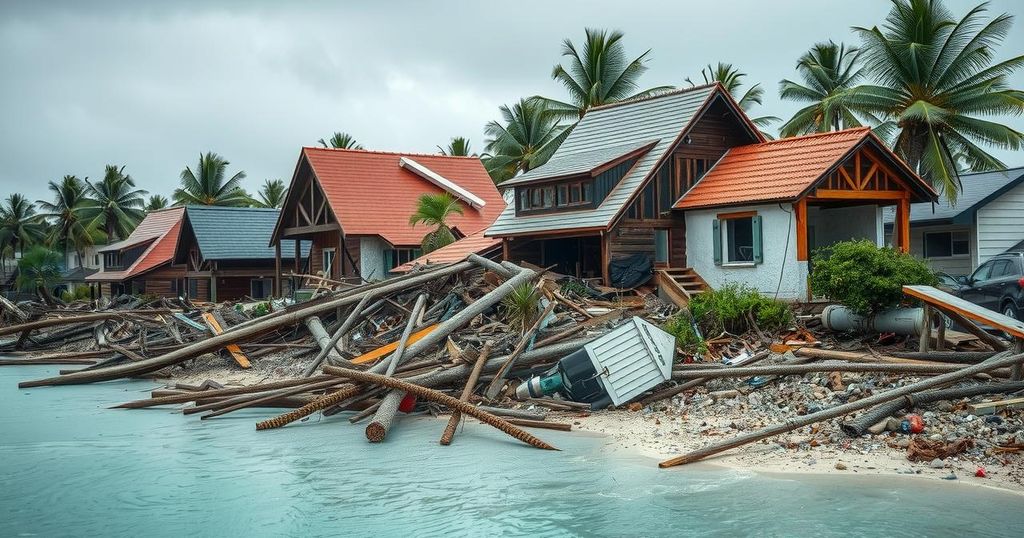Cyclone Chido has caused at least 11 deaths and extensive damage in Mayotte before hitting northern Mozambique. The storm brought winds exceeding 220 kph, prompting fears of further casualties and destruction. As rescue efforts unfold, the cyclone represents the worst disaster to strike Mayotte in 90 years, highlighting a growing humanitarian crisis exacerbated by climate change.
Cyclone Chido has wreaked havoc on the French territory of Mayotte, resulting in the tragic loss of at least 11 lives and extensive infrastructural damage. The tropical cyclone, characterized by winds surpassing 220 kph (136 mph) and classified as a category 4 storm, directly impacted the impoverished island before continuing its destructive path to northern Mozambique. Emergency services in Mayotte, where hospitals reported numerous injuries, are challenged to provide accurate assessments amidst ongoing rescue efforts. Prime Minister François Bayrou acknowledged the widespread devastation, particularly affecting essential services, including hospitals and transportation hubs. As aid commences, local officials describe the cyclone as the most severe to strike the territory in nearly a century.
Cyclone Chido induced widespread chaos across the Indian Ocean, also affecting neighboring islands such as Comoros and Madagascar. Authorities in Comoros were still searching for 11 fishermen reported missing at sea. As Chido approached Mozambique, approximately 2.5 million individuals are under threat, with UNICEF reporting significant destruction of homes and services in the Cabo Delgado province. The precarious cyclone season poses additional risks, manifesting in flooding and potential waterborne disease outbreaks, exacerbated by climate change concerns that underscore the urgent need for international assistance for affected impoverished nations.
The Indian Ocean cyclone season from December to March has historically led to severe weather events impacting southeast Africa. Cyclones, including Idai and Freddy in earlier years, have caused devastating humanitarian crises in countries such as Mozambique, Malawi, and Zimbabwe, often resulting in substantial loss of life and overwhelming challenges for local recovery efforts. Recent studies link the increasing severity of cyclones to climate change, further complicating the situation for nations with minimal contributions to global warming, yet disproportionately affected by its impacts. French overseas territories like Mayotte face unique vulnerabilities, prompting calls for increased aid from wealthier nations. As natural disasters become more frequent, comprehensive disaster preparedness and response strategies are paramount in mitigating adverse outcomes for susceptible populations.
In summary, Cyclone Chido’s impact on Mayotte and its subsequent trajectory into Mozambique has sparked a humanitarian crisis, necessitating urgent intervention and support. The resulting fatalities, injuries, and infrastructural damage exemplify the increasing frequency and severity of such climatic events, driven by climate change. The challenges faced by vulnerable communities highlight a global responsibility to address the environmental repercussions and provide necessary assistance to those affected.
Original Source: time.com






